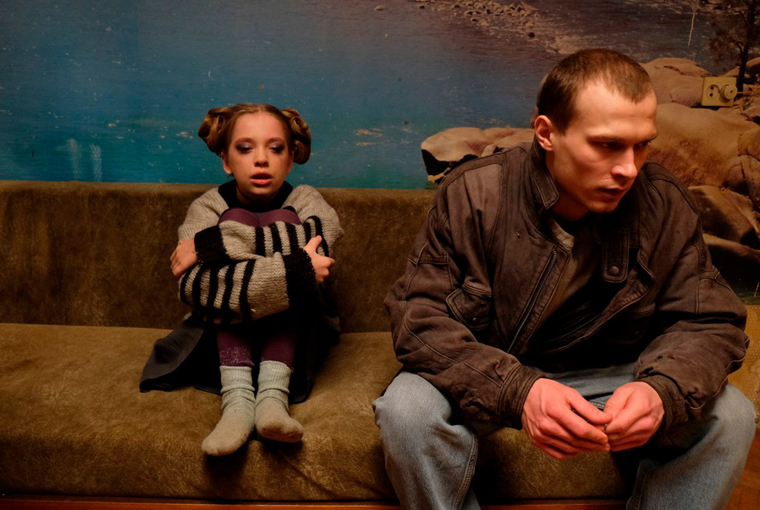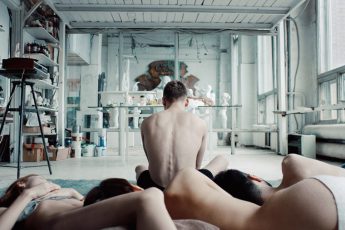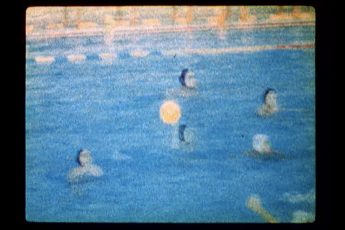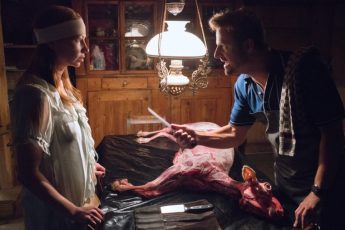
In Alexey Balabanov’s 1997 cult film The Brother, 1990s Russia found the cinematic portrait that every era of turbulent turn-over and hardship produces: a gritty, atmosphere-driven flick recounting the way in which a very ordinary person with his or her (usually his) heart in the right place is sucked in by the ruthless logic of society. From rampant nationalism to scattered joys of capitalism and the spontaneous emergence of subcultures, Balabanov is able to pack everything into a film nominally set in the crime world. Accordingly, his protagonist Danila Bagrov (Sergei Bodrov Jr.) acts as a vessel for all the registers of the human soul, somehow managing to be naïve, principled, shy, curious, calculating, ruthless and delusional all at once. The result is a deeply inclusive film implicating Russian viewers in what they all really did experience in one way or another: times of economic despair and a public atmosphere of violence.
Though the cult status of Balabanov’s film means that there is no blank space when it comes to the film depiction of 1990s Russia, enough time seems to have passed to reapproach that era in recent history with a fresh pair of eyes. If today’s teens are too young to remember how difficult the 1990s were, as political analysts often note, they are also too young to approach that time with the sentimental sternness that characterizes Balabanov’s film. With his 2019 feature about a brother-like character navigating the crime world of 1990s Russia, Boris Akopov seizes the opportunity for such a reframing of the era, replacing Balabanov’s pining for a lost youth with newly found vigor and an entertainment-oriented matter-of-factness.
Akopov’s film revolves around Bull (Yuriy Borisov), the leader of a local gang who must pull off a dangerous job in return for a bail-out. The film begins with a hysterical mass brawl in which Bull navigates his conflicting roles as son and ring leader when the onslaught of a rivaling gang on his turf prevents him from seeking out his sick mother. Where Balabanov’s Danila must first grow into his role as a mobster, inconspicuously and perhaps even unwillingly, roaming the streets with his Walkman and yearning to be loved by us viewers, the Bull is presented as a gangster from the very beginning of the film. (If anything, he must prove he is a character we can identify with without our condoning the romantization of the world he embodies.) This shift in power politics is also reflected in the personal realm, where Bull acts as an older brother to two young siblings and perhaps even to his alcoholic mother, while Danila is the younger brother of an influential mobster who introduces him to the crime world.
The fact that crime is accepted as the characters’ modus operandi, rather than being presented as a tragic non-choice of fate, means that Akopov is dependent on two sources of suspense that are typical for the crime genre: wittiness and action. Though the film also plays with ironic distancing and grotesque characters (an obnoxious Heroin addict who is part of Bull’s gang and the local mafia boss with the obligatory whims and eccentric nickname), it mostly takes itself seriously when retracing Bull’s short-lived rise to fame. The Bull approaches his job with earnest determination, and that is a posture the film suggests we should take seriously. The story, meanwhile, is structured in the most classical of ways, setting off from an initiation moment that brings temporary success and money and, soon enough, a lot of problems. At some point, the film branches off into romantic territories that are surely meant to please a wider public, turning this film into date-material.
As with its predecessor The Brother, the interesting questions about The Bull are hence not stylistic or cinematographic, all of which would have to be answered along familiar lines, but ideological. What has changed in the perception of the Russian 1990s, an era that is generally considered to have made possible Putin’s rise to power, in the 20 years since The Brother’s release? Frustratingly enough, this is a topic on which The Bull is oddly silent. Though Akopov’s film is full of hints and political double entendres – regular dialogs are interspersed with random calls for democracy and liberation – its suggestive ending on Yeltsin’s dismissal leaves the viewer with all the questions she could already have formulated from a 1990s perspective. In fact, if there is any direction in which this film has moved, it is towards further ambivalence and abstention. For not only did Balabanov lay his cards on the table with the ultra-disturbing Brother 2, a masterwork of nationalist agitation, even Brother itself lacked ambivalence in the sense that it depicted Danila’s activity of making sense of the world by approaching it with a concrete set of principles (however wrong and hypocritical they may have been). A world that knows no rules but those of the underworld can be made sensible, Brother suggested, if you yourself know what is right and wrong. In the 1990s, such a compass of what is right and wrong still appeared to exist. In The Bull, Balabanov’s obsession with moral dilemmas is replaced with ruminations over what it even is we’re striving for, and how we can find love and peace in the long term – in short, middleclass fantasies. In hindsight, we’re made to believe, the 1990s make as little sense as this complex world we’re currently living in.




Leave a Comment